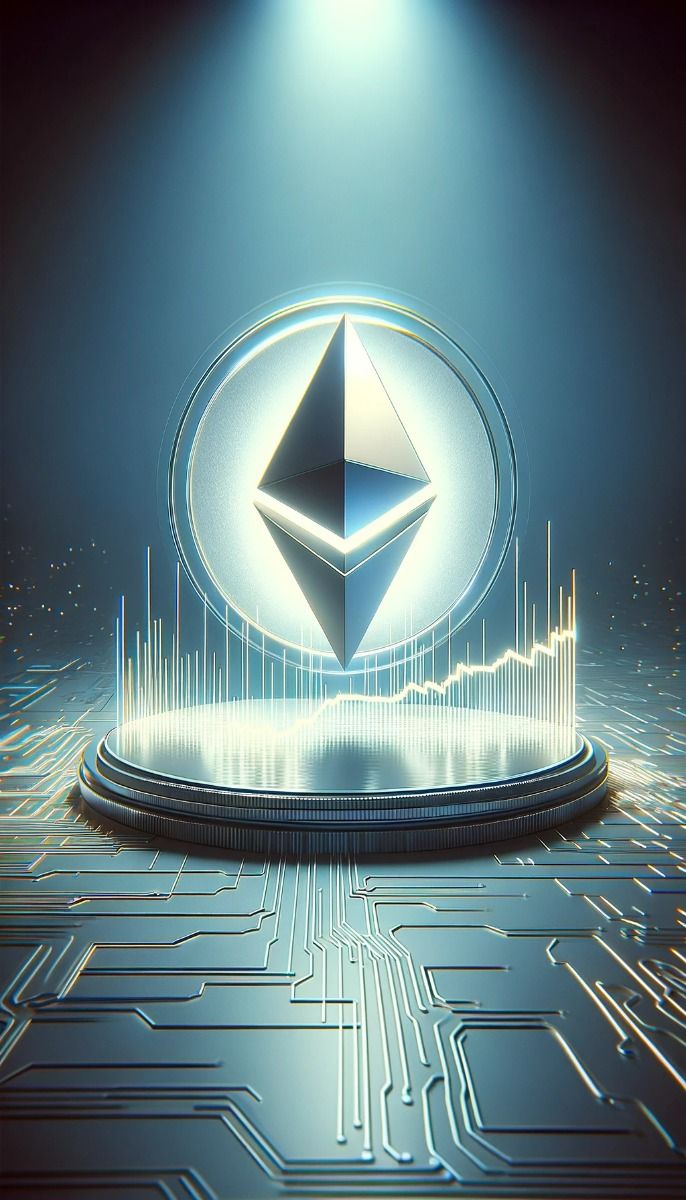Introduction
Ethereum, one of the most powerful and influential blockchain platforms in the world, has transformed the way we think about digital currencies and decentralized applications. Launched in 2015 by Vitalik Buterin and a group of developers, Ethereum quickly surpassed Bitcoin in many ways, introducing the concept of smart contracts and decentralized finance (DeFi). But what exactly is Ethereum, and how has it impacted our daily lives, society, and the future of technology?
In this article, we’ll explore the history, impact, and significance of Ethereum, its role in shaping modern society, and why it’s becoming increasingly important in today’s digital world.
What is Ethereum?
It is a blockchain platform designed to facilitate decentralized applications (dApps) and smart contracts, which are self-executing contracts with terms directly written into lines of code. Unlike Bitcoin, which primarily serves as a digital currency, Ethereum provides a broader range of functionalities, making it a programmable blockchain.
The native cryptocurrency of the Ethereum network is called Ether (ETH), which serves both as a digital currency and as fuel for running dApps and executing smart contracts on the Ethereum platform.
The History
It was proposed in late 2013 by Vitalik Buterin, a Canadian-Russian programmer. Buterin believed that Bitcoin, though groundbreaking, was limited in its functionality, particularly for developing decentralized applications. The Ethereum whitepaper was published in 2013, and the project was officially launched in July 2015 after a highly successful crowdfunding campaign raised over $18 million.
It’s launch was a turning point in blockchain technology. Unlike Bitcoin, which had a relatively simple goal of becoming a peer-to-peer digital currency, Ethereum’s vision was to build a global decentralized computer that would allow developers to create and deploy applications without relying on centralized servers or institutions.
Over the years, It has gained widespread adoption and has become the leading platform for dApps and DeFi projects, with an active ecosystem of developers, businesses, and users contributing to its growth.
How Impacts Daily Life
It’s influence extends far beyond the world of cryptocurrency. Here’s how it is shaping daily life and making a difference in modern society:
- Decentralized Finance (DeFi): It has been the backbone of the DeFi movement, enabling users to access financial services like lending, borrowing, and trading without intermediaries like banks. By leveraging smart contracts, users can engage in financial transactions directly with each other, reducing costs and increasing accessibility.
- Smart Contracts: It introduced the concept of smart contracts, which allow transactions and agreements to be executed automatically once certain conditions are met. This eliminates the need for middlemen and ensures greater transparency and security in various industries, from real estate to supply chain management.
- NFTs (Non-Fungible Tokens): It’s blockchain has become the primary platform for NFTs, which represent unique digital assets. These tokens have revolutionized the world of art, entertainment, and collectibles, enabling creators to monetize their work in new ways.
- Decentralized Applications (dApps): It enables developers to create dApps, which are applications that run on the Ethereum blockchain rather than on centralized servers. These dApps are more secure, transparent, and censorship-resistant, offering a wide range of use cases, from social media platforms to gaming.
- Energy Efficiency: It has faced criticism for its high energy consumption due to its Proof of Work consensus mechanism. However, the Ethereum network is transitioning to Proof of Stake (PoS), which is more energy-efficient and environmentally friendly. This shift will significantly reduce Ethereum’s carbon footprint.
Fun Facts
- Ethereum’s First Block: The first Ethereum block, known as the genesis block, was mined in July 2015. It was mined by Vitalik Buterin and the Ethereum development team and marked the official start of the Ethereum network.
- The DAO Hack: One of the most significant events in It’s history was the DAO hack in 2016. A vulnerability in a decentralized autonomous organization (DAO) led to the theft of millions of dollars worth of Ether. This event ultimately led to a controversial hard fork in the Ethereum blockchain, splitting it into Ethereum (ETH) and Ethereum Classic (ETC).
- Smart Contract Transactions: It’s smart contracts have been used for a wide range of applications, including real estate deals, insurance, and even voting systems. The versatility is smart contracts has allowed businesses to explore new ways to streamline operations.
- Vision for the Future: It’s creator, Vitalik Buterin, envisions a world where It becomes a global settlement layer for all types of applications and services. The goal is to build a fully decentralized internet, free from centralized control and censorship.
Frequently Asked Questions (FAQs)
- What makes different from Bitcoin? While Bitcoin is primarily a digital currency, It is a programmable blockchain that allows developers to build decentralized applications and execute smart contracts. Bitcoin is a store of value, whereas Ethereum is a platform for innovation.
- How can I buy? You can buy on most major cryptocurrency exchanges, including Coinbase, Binance, and Kraken. Simply create an account, deposit funds, and purchase Ethereum with your preferred payment method.
- What is Ethereum 2.0? Ethereum 2.0 refers to the network upgrade designed to improve the scalability, security, and sustainability of Ethereum. One of the most significant changes is the transition from Proof of Work (PoW) to Proof of Stake (PoS), which will make the network more energy-efficient.
- How is secure? It’s blockchain is highly secure, as it uses a decentralized consensus mechanism. However, like all technology, it is not immune to risks. Developers and users must exercise caution, especially when dealing with smart contracts and decentralized applications.
- What is an ERC-20 token? ERC-20 is a standard for creating and issuing smart contract-based tokens on the blockchain. These tokens are widely used in Initial Coin Offerings (ICOs) and represent a variety of assets and utilities within the Ethereum ecosystem.
Significance to Society
It has had a profound impact on various sectors, from finance to technology and beyond. Here’s why it’s so important:
- Decentralization of Power: It decentralized nature reduces the control that central authorities have over financial and social systems. This opens up new opportunities for people to interact with one another in a trustless environment, free from intermediaries.
- Empowering Individuals: By providing access to decentralized finance (DeFi) and empowering creators through NFTs, Ethereum has enabled individuals to take control of their wealth and assets in ways that were previously impossible. It’s leveling the playing field for people from all walks of life.
- Driving Innovation: It has sparked the development of new technologies and industries, including blockchain-based games, digital identity systems, and decentralized governance. Its ability to innovate has made it one of the most influential platforms in the world of technology.
- Building a Decentralized Web: It’s vision of a decentralized web could potentially displace traditional internet giants, such as Google and Facebook, by allowing users to maintain control over their data and online interactions.
Conclusion
It’s journey from a conceptual idea to a global phenomenon has been nothing short of revolutionary. With its ability to facilitate decentralized finance, execute smart contracts, and create digital assets like NFTs, It is reshaping the future of technology and finance. Its impact on society is already being felt, and as the network continues to evolve, it’s poised to play an even more significant role in our digital lives.
The shift toward 2.0, coupled with its ongoing innovation, makes a cornerstone of the decentralized future. As more individuals, businesses, and governments embrace It’s capabilities, its significance and potential for positive change will only continue to grow.










